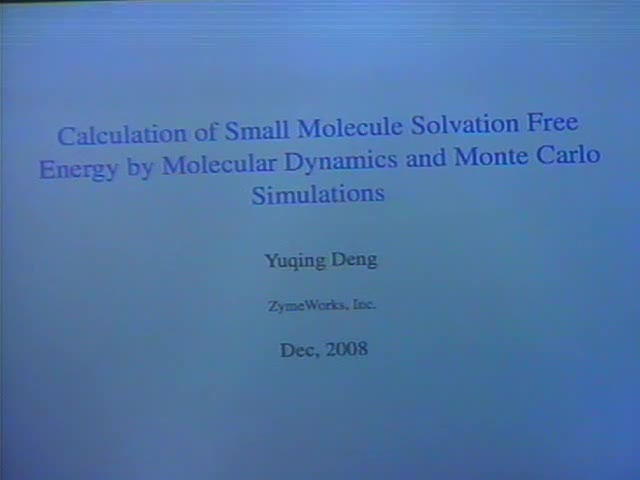Calculation of small molecule solvation free energy by molecular dynamics and Monte Carlo simulations.
Presenter
December 10, 2008
Keywords:
- molecules
MSC:
- 92E10
Abstract
Solvation free energy determines the thermostability of molecules in solution.
Accurate prediction of solvation free energy from atomistic simulations
have great impact on the understanding of many biologically important
processes. What makes the simulation of the solvation free energy difficult
is that it consists of competing effects from opposing interactions
at a molecular level. To accelerate convergence, separations of the competing
forces are necessary. Traditionally formulation of solvation free energy
separates van der Waals and electrostatics. We find that further separation
of the attractive and repulsive forces within the van der Waals interactions
is also necessary. Test calculations with constant pressure molecular
dynamics (MD) in water show that the seemingly small nonpolar
solvation free energy
is made up of relatively large unfavorable contribution from repulsive forces
and a canceling favorable contribution from the attractive forces. Our
results show good agreement with experimental solvation free energies and
those of other computational studies. Alternative to the constant pressure
simulation with a fluctuating volume, the same results can be generated with
fixed volume but fluctuating number of water molecules --- grand canonical
ensemble. With the grand canonical Monte Carlo (GCMC) moves on solvent water,
we are able to obtain accurate solvation free energy as well.
The GCMC/MD method is shown to yielded accurate results for ligand binding in
cytochrome p450, in which case water displacement from a confined
binding pocket can not be account for in typical MD simulation time.
